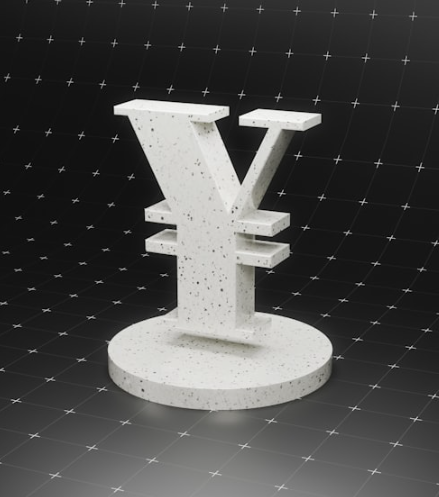For homeowners, the value of their property is often a significant asset, even if they don’t have much cash saved up. Home equity, the difference between your home’s current market value and what you owe on your mortgage, can provide a financial cushion. For example, if your home is worth $400,000 and you owe $200,000, you have $200,000 in home equity. For those who need cash, a home equity loan might be a smart financial tool, offering benefits over other forms of borrowing, such as cash-out refinancing.
A home equity loan is different from a home equity line of credit (HELOC) and is often a faster, simpler, and less expensive option for accessing the equity in your home. Let’s explore the advantages and disadvantages of home equity loans to help you decide if it’s the right choice for you.
Benefits of Home Equity Loans
1. Lower Interest Rates
One of the primary advantages of home equity loans is their relatively low and fixed interest rates. Because these loans are secured by your home, lenders offer them at more affordable rates compared to unsecured loans, like personal loans or credit cards. This makes home equity loans an appealing option for larger borrowing needs.
The amount you can borrow depends on the equity you have in your home, but lenders typically require you to retain 10% to 30% of your equity. This means you can usually borrow up to 70% to 90% of your home’s appraised value, combining your first mortgage and home equity loan.
Moreover, since the interest rate is fixed, your monthly payments remain predictable over the life of the loan. This stability is an advantage over HELOCs, which often have variable interest rates that can fluctuate with market conditions.
2. Predictable Monthly Payments
Home equity loans often have longer repayment periods, ranging from 10 to 30 years, resulting in lower monthly payments. However, the longer the term, the more you will pay in interest. For example, with a $30,000 loan at a 6% interest rate:
- Over 10 years: Your monthly payment would be $333, with a total interest of $9,967.
- Over 30 years: Your monthly payment would be $180, but total interest would rise to $34,751.
Despite the increased total interest in the longer term, many homeowners find the ability to set fixed monthly payments over an extended period beneficial for budgeting and financial planning.
3. Flexible Use of Funds
Unlike other loans that may require you to use the funds for a specific purpose, home equity loans give you the flexibility to use the money however you see fit. Whether it’s home renovations, consolidating high-interest debt, paying for medical expenses, or funding education, the decision is yours.
However, there are some tax considerations. While interest on a home equity loan used for home improvements is tax-deductible, if you use the loan for other purposes, such as paying off debt, the interest is no longer deductible. Still, the overall cost of borrowing might remain low enough that the tax deduction doesn’t outweigh the advantages of using the loan for non-home-related expenses.
Disadvantages of Home Equity Loans
1. Risk to Your Home
Since your home serves as collateral for the loan, failure to make payments could result in foreclosure. While lenders prefer to avoid foreclosure due to its costs, it remains a real risk. It’s crucial to ensure you can comfortably repay the loan, especially during financial challenges.
If home values decline, you could end up owing more than your home is worth, which complicates matters further. While some lenders may offer loan modifications, it’s best not to rely on this and to carefully assess your ability to manage the loan.
2. Lump-Sum Borrowing
Unlike a HELOC, which lets you borrow smaller amounts as needed, a home equity loan provides a lump sum that you must pay interest on, even if you don’t use the entire amount. While this can be advantageous if you have a large, known expense, such as home renovations, it may not be ideal if you’re uncertain about the exact amount you’ll need to borrow.
Borrowing too much can lead to unnecessary debt, and in situations where your borrowing needs are more fluid, a home equity loan might not be the best option. However, a home equity loan does offer more security than a HELOC, especially since lines of credit can be revoked.
3. Eligibility Requirements
Home equity loans are not available to everyone. Lenders typically require you to have a credit score of at least 620 and a debt-to-income ratio below a certain threshold, usually between 36% and 43%. Additionally, you need a steady income and sufficient home equity.
If you are already burdened with debt or have poor credit, it can be difficult to qualify for a home equity loan. This means that if you’re in financial distress, relying on home equity might not be a viable option.
Weighing Your Options
A home equity loan can be an attractive borrowing option due to its low-interest rates, fixed payments, and flexibility. However, it’s not without risks, particularly the potential to lose your home if you’re unable to repay the loan. It’s important to carefully consider how much you can borrow, what the loan’s terms will be, and whether you’re financially capable of managing the payments.
Before committing to a home equity loan, it’s wise to shop around for the best rates and terms from different lenders. If you’re unsure, consulting with a financial advisor can help you determine if this type of loan aligns with your long-term financial goals.
In summary, home equity loans can be an excellent tool for homeowners who need access to cash, but they should be used cautiously and thoughtfully.













